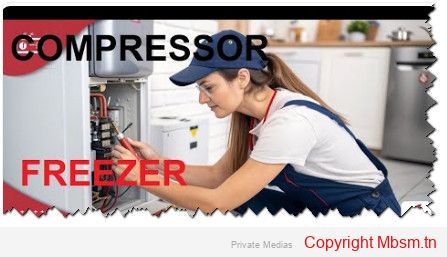Refrigeration compressors are essential components in cooling systems, and understanding common issues can help in troubleshooting and maintaining their efficiency. Below are some prevalent problems, their causes, and potential solutions.
1. Compressor Won’t Start
- Causes:
- Faulty Start Relay: The start relay is crucial for initiating the compressor. If it fails, the compressor won’t start. Signs include overheating or arcing at the relay.
- Defective Thermostat: A malfunctioning thermostat may not allow power to flow to the compressor, preventing it from starting.
- Electrical Issues: Loose connections or damaged wires can disrupt power supply to the compressor.
- Solutions:
2. Overheating
- Causes:
- Dirty Condenser Coils: Accumulation of dust and debris on condenser coils can hinder heat dissipation, causing the compressor to overheat.
- Lack of Ventilation: Insufficient airflow around the compressor can lead to overheating.
- Faulty Condenser Fan: If the fan fails, it cannot adequately cool the condenser coils.
- Solutions:
3. Inadequate Cooling
- Causes:
- Low Refrigerant Levels: Insufficient refrigerant can result from leaks, leading to inadequate cooling.
- Clogged Evaporator Coil: Dirt accumulation can restrict airflow and cooling efficiency.
- Solutions:
4. Noisy Operation
- Causes:
- Worn Bearings: Over time, bearings in the compressor can wear out, causing grinding or squealing noises.
- Loose Components: Vibration can cause parts to become loose, leading to rattling sounds.
- Solutions:
- Inspect and replace worn bearings as necessary4.
- Tighten any loose components to reduce noise levels.
5. Compressor Stuck or Buzzing
- Causes:
- A stuck compressor may produce a buzzing sound without starting, often due to mechanical failure or electrical overload.
- Solutions:
- Check for electrical overloads and reset any overload protectors if activated. If the problem persists, professional assistance may be required6.
Conclusion
Regular maintenance and prompt troubleshooting of these common issues can significantly enhance the lifespan and efficiency of refrigeration compressors. Implementing a preventive maintenance schedule will help mitigate many of these problems before they escalate into major repairs.

| Attachment | Type | Link |
|---|---|---|
| Mbsm-tn-private-media__Mbsm_media_2024-12-20_215754 | image/jpeg | Get Link |




